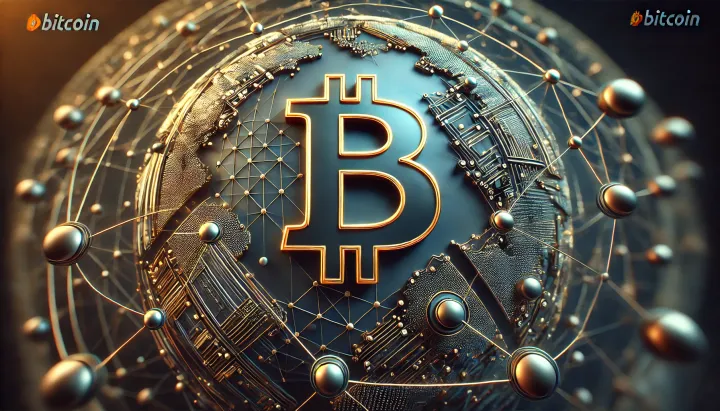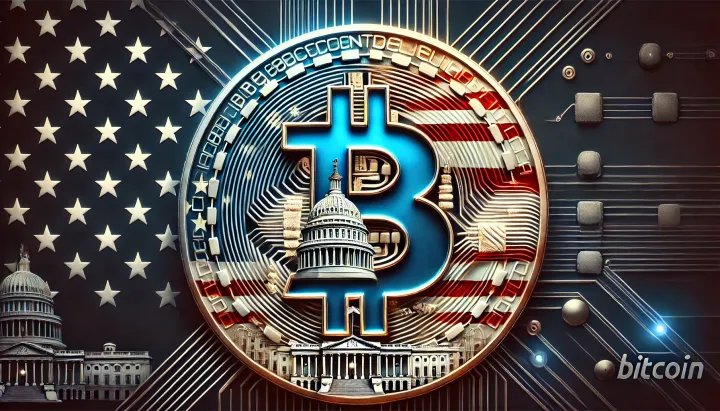Restoring Balance: Bessent’s Speech on an IMF & World Bank Reset
The April 23, 2025 IIF Global Outlook Forum featured Treasury Secretary Scott Bessent outlining a back-to-basics reform plan for the IMF and World Bank. He links persistent trade deficits and multilateral “mission creep” to systemic risk and pledges conditional U.S. engagement.

- My 'briefing notes' summarize the content of podcast episodes; they do not reflect my own views.
- They contain (1) a summary of podcast content, (2) potential information gaps, and (3) some speculative views on wider Bitcoin implications.
- Pay attention to broadcast dates (I often summarize older episodes)
- Some episodes I summarize may be sponsored: don't trust, verify, if the information you are looking for is to be used for decision-making.
Summary
The April 23, 2025 IIF Global Outlook Forum featured Treasury Secretary Scott Bessent outlining a back-to-basics reform plan for the IMF and World Bank. He links persistent trade deficits and multilateral “mission creep” to systemic risk and pledges deeper U.S. engagement conditioned on measurable institutional focus. Bessent combines fiscal consolidation, stricter surveillance of surplus nations, and energy-abundance financing to realign global growth.
Note that this speech doesn't have any direct Bitcoin content but does have some important implications. Bitcoiners should probably listen closely to all Bessent's official speeches for US policy signal.
Take-Home Messages
- IMF Refocus: Strip climate and social add-ons and re-center surveillance on balance-of-payments stress.
- World Bank Graduation: End concessional lending to upper-middle-income borrowers—redirect capital to low-income infrastructure.
- Trade Rebalancing: Pair U.S. deficit reduction with partner demand-side reforms to curb chronic imbalances.
- Energy First: Prioritize base-load gas, oil, and nuclear projects over climate-conditioned finance as the engine of development.
- Regulatory Reset: Loosen post-2008 constraints so community banks can counter shadow-credit growth and revive Main-Street lending.
Overview
Secretary Bessent begins by asserting that Bretton Woods institutions have drifted from their chartered roles as balance keepers, diluting resources across climate and social initiatives. He proposes a tight return to core mandates, IMF balance-of-payments surveillance and World Bank poverty-reduction lending, to restore credibility. Reforms include equal scrutiny for surplus economies that manipulate currencies or hoard savings.
He singles out China’s export-heavy model as the principal global distortion and urges a shift toward domestic consumption to relieve trade tensions. Europe is praised for nascent fiscal and defense expansion that could share demand responsibilities long borne by the United States. Both regions face intensified IMF oversight under the proposed reforms.
Turning inward, Secretary Bessent concedes that U.S. fiscal deficits above six percent of GDP feed external imbalances and raise interest costs. He commits to driving the deficit down to “a three-handle,” signalling bipartisan budget negotiations ahead. A strong-dollar policy is reaffirmed, grounded in confidence rather than any fixed exchange target.
Energy strategy anchors the development agenda: abundant, reliable power is framed as the sine qua non of growth. Secretary Bessent urges the World Bank to drop prohibitions on nuclear finance and embrace “all-of-the-above” fuels, calling intermittent-only grids a luxury belief. This approach, he argues, accelerates poverty reduction while attracting private co-investment.
Stakeholder Perspectives
- U.S. Treasury: Seeks quantitative milestones for IMF and World Bank reforms to justify continued leadership.
- Surplus Economies: Face tougher surveillance and potential reputational costs if currency and savings policies persist.
- Low-Income Nations: Expect increased access to concessional funding for energy and basic infrastructure.
- Multilateral Institutions: Must trim agendas, boost transparency, and demonstrate value amid rising conditionality.
- Financial Sector: Anticipates regulatory easing that expands supervised lending but heightens compliance demands.
- Energy Industry: Stands to gain from multilateral backing of fossil and nuclear projects in emerging markets.
Implications and Future Outlook
If adopted, the U.S. blueprint would sharpen IMF external-sector reports, empowering policymakers with candid assessments of surplus-country distortions. A parallel World Bank graduation policy could reallocate billions toward frontier-market infrastructure, intensifying competition with state-backed lenders. These shifts may realign global development priorities toward transparent, market-oriented finance.
Domestically, credible deficit reduction paired with selective deregulation could lower Treasury yields and revive community-bank lending. Success hinges on Congressional resolve and coordinated supervisory tweaks that manage private-credit spillovers. Failure would leave shadow finance dominant and undercut Bessent’s growth narrative.
Internationally, linking security guarantees to trade access pressures allies to increase defense spending and fiscal stimulus. Such conditionality could strengthen U.S. leadership or strain alliances if budgets tighten elsewhere. The energy-abundance push, meanwhile, tests climate commitments but promises faster industrial growth for the Global South.
Some Key Information Gaps
- How can the IMF streamline its mandate to prioritize balance-of-payments surveillance? A focused Fund would improve crisis signaling and reinforce monetary stability worldwide.
- Which criteria best determine when middle-income countries should exit World Bank borrowing? Clear triggers optimize scarce capital and sharpen development impact.
- What financing models can deliver affordable base-load energy in developing economies? Reliable power is the catalyst for growth, poverty reduction, and geopolitical stability.
- Which regulatory adjustments can safely bring private credit back into supervised channels? Addressing shadow-lending risks preserves financial integrity while expanding credit supply.
- What surveillance tools enable the IMF to hold surplus countries accountable for currency practices? Enhanced accountability would curb distortions and foster balanced global demand.
Broader Implications for Bitcoin
Monetary Sovereignty Reimagined
A leaner IMF and a graduation-focused World Bank could erode confidence in legacy multilateral safety nets, prompting nations and firms to diversify reserves. Bitcoin, as a non-sovereign hard asset, may attract policymakers seeking hedges against balance-of-payments stress. Increased institutional interest could accelerate adoption of Bitcoin-denominated settlement rails.
Energy Abundance and Bitcoin Mining
World Bank support for gas, nuclear, and fossil-backed grids could lower electricity costs in emerging markets. Cheap, reliable energy often draws Bitcoin miners, turning stranded resources into revenue and improving grid stability through flexible demand. This synergy may integrate Bitcoin mining into development-finance narratives.
Deregulation and Digital Asset Custody
Easing post-2008 constraints on community and regional banks aims to revive traditional lending but also widens competitive horizons. Banks seeking new fee income may expand into Bitcoin custody and collateralized lending, mainstreaming Bitcoin within regulated finance. Such moves would tighten the link between macro-prudential policy and digital-asset markets.



Comments ()